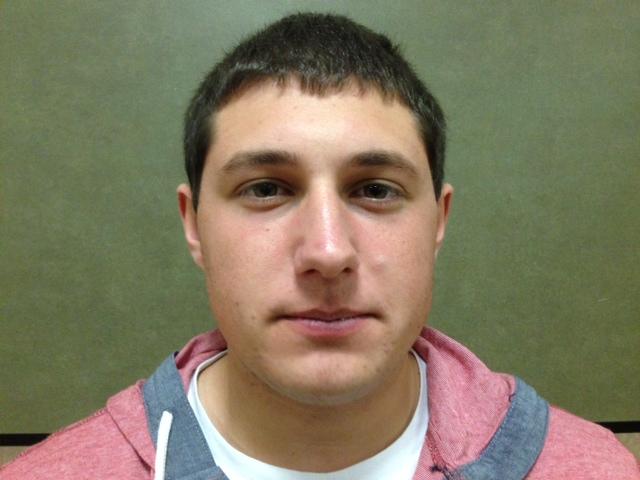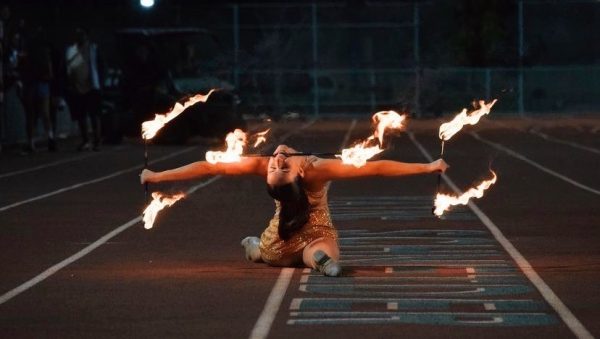Ag-Sci senior projects yield a big success
Catie Salvador presents her senior project titled “Coping with Sudden Change.”
January 29, 2014
For Tracy High students in the Agricultural Scientific Academy (Ag-Sci), the senior project is the climax of the Ag-Sci experience. According to advisors and students, this was one of the best years of senior project presentations, which took place from Jan. 14-21.
“This year was probably one of the best years we have had in a long time,” Ag-Sci teacher Michael Woodward said. “All of the presentations were good.”
Ag-Sci students begin preparation for senior project presentations freshman and sophomore year, in which they do in-class presentations and discuss topics for senior project. However, the process does not officially start until junior year, in which students choose topics and write their research paper. In the spring of junior year and over summer students work on their projects and turn in a portfolio the fall of senior year. Finally in January of senior year, the students present their projects to a panel of judges and students.
Students chose to study a wide range of topics, from writing books, to concussion awareness, to magic, to professional eating, to cotton farming, etc.
One of the projects that stood out to Woodward was Adam Gasior’s. Gasior’s project entailed making an original Italian sausage recipe with an instructional video.
Gasior found inspiration for his project from his Italian parents and a trip he took to Italy last summer. While the project turned out well, there were a few bumps in the road.
“I had to keep trying recipes until I liked them,” Gasior said. “The photo editing was also difficult.”
Gasior’s presentation was very engaging with the judges.
“In my presentation I made a tri-board with the steps on how to make the sausage, showed the instructional video, handed out the cookbook, and gave the judges samples of the sausage,” Gasior said.
One of the reasons the Ag-Sci Academy requires this of its students is that it allows students to tap into a deeper knowledge of their interests, rather than reading from a textbook or taking a test.
“When the students look back on it they will be able to say, ‘In high school I learned how to write a book or cook a sausage,’ rather than ‘In high school I got the highest grade,’” Woodward said. “It is not just memorizing the facts, it becomes something more meaningful.”
Students were able to gain more than just a grade with the senior project.
“I learned patience (in teaching birds how to fly) and how to talk to others and explain things,” Emily Wedel, who did her senior project on learning how to become a falconer, said.
Some of the questions the judges asked themselves while observing the presentations were, was it challenging for the student? Did they do something they would not ordinarily do? Did it help the larger community? Did it benefit the students? And, how much did the students grow from doing the project?
At the end of the school year two scholarships are given out. $500 is given to the most outstanding female and $500 to the most outstanding male.












